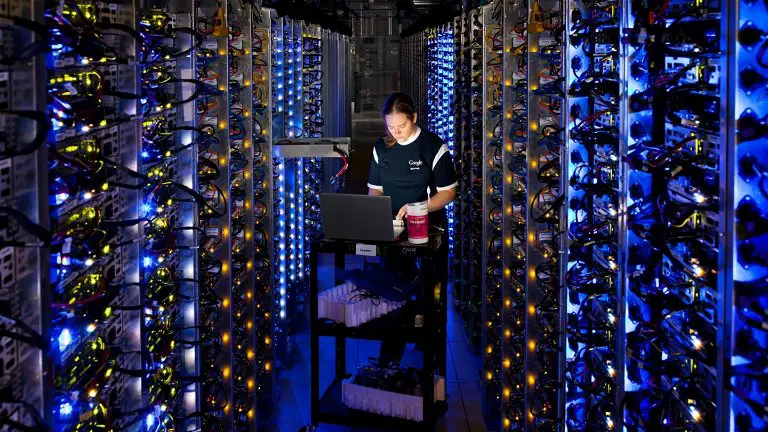
The rise of AI has brought a breath of fresh air to the technology sector. At present, everything seems to integrate functions or features based on artificial intelligence. The companies competing in this sector can be counted on the fingers of one hand, with Google, OpenAI and Meta being the top three. Despite the advances and possibilities of AI, many users do not take into account one of its main problems: consumption and emissions.
Yes, training AI models generates both high consumption and increases carbon emissions. Data centers can consume more electricity than entire countries, which is estimated by calculating the total energy expenditure of all these training centers. Many of the companies committed to reducing their emissions, but their commitment to Artificial Intelligence has meant that this promise has not been fulfilled. Google is one of these companies that has increased its emissions by 50% since its foray into the AI sector.
The Mountain View company has published a report in which they reflect their data related to energy consumption, their commitment to renewable sources and the emissions made. In this document you can see in detail what has changed and, above all, has worsened compared to the data published in 2019. In fact, Google does not seem to be ready to face its proposal to reduce its emissions to zero by 2030.
Google increases its carbon emissions by 50% and the culprit is AI
Google’s significant increase in carbon emissions is a direct consequence of the high energy consumption of its data centers, which support the infrastructure necessary for the development and operation of its advanced AI systems.
These data centers require enormous amounts of electricity to operate at optimal levels, which translates into an increase in the company’s carbon footprint. Despite Google’s efforts to use renewable energy and improve energy efficiency, the demand for AI exceeds current mitigation capabilities.
Deep learning models, in particular, need vast datasets and powerful computing capabilities to train and run complex algorithms. This process, known as model training, is extremely energy-intensive and is a major cause of Google’s increased carbon emissions.
The energy expenditure of these centers has increased by 17% in 2023, a considerable figure that can only grow as time goes by and advances continue to be made in the field of AI. It is estimated that by 2030 the demand for electricity globally will grow by 20% due to AI.
Over the years, Google has been a leader in adopting sustainable practices, including using solar and wind energy to power its operations. However, the commitment to AI has been a problem for the company and it will have to solve it if it wants to keep the promises made.
Now, all that remains is to wait and see how Google deals with the problem of AI and energy consumption. It is clear that it is not an easy task, but it is not impossible. Of course, this should not only apply to Google and, the rest of the companies participating in the AI race should also be subject to scrutiny in order to know their consumption and emissions.

Comments